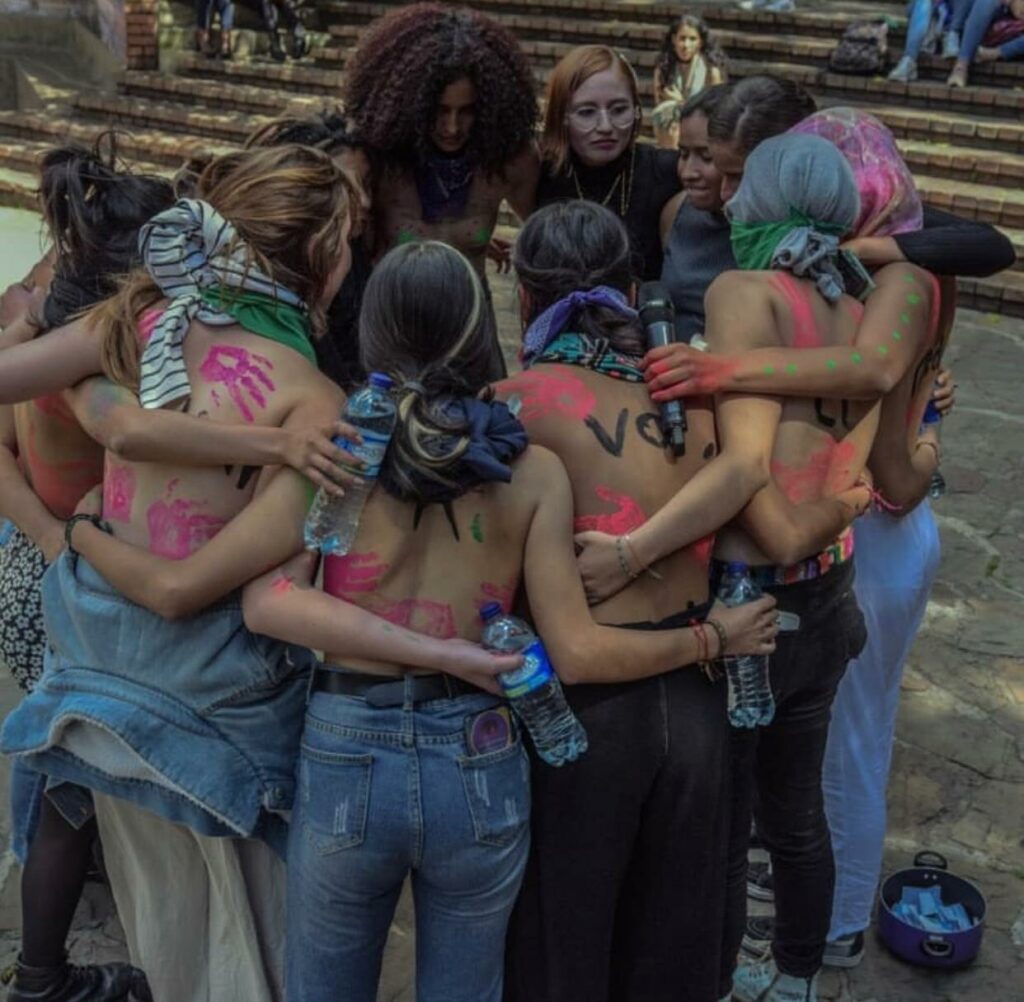Universities won’t listen, but social media will. Here’s how student groups are making sure that cases of sexual harassment don’t remain hidden.

Sexual abuse and harassment in universities are more common than people may think. And protocols for these kinds of cases are even more outdated. In Colombia, the statistics are concerning. Teachers and students have been accused of sexual aggression. Women are tired and they won’t stay silent any longer. We speak to some of the students pushing for reform.
Female students have held protests and marches to fight against sexism and sexual aggression. Most universities have at least one public testimony of campus harassment. But the support systems and protocols for handling accusations of harassment are insufficient. Many victims don’t believe they will be supported if they come forward, and that universities won’t take their stories seriously.
In fact, the few protocols that do exist in universities to handle cases of sexual aggression were introduced as a result of pressure from student groups — not by the universities themselves.
Harassment on social media exposed
In 2019 Rebelión en la granja, a movement created by female students at the Universidad Nacional, used Twitter to expose a group named FEDEGAN. This was WhatsApp group of male students who shared intimate pictures of female students from the university and schools nearby.
The same year, the Bolivar en falda collective was formed in the Universidad Pontificia Bolivariana (UPB) to address a case of campus harassment. A male student had lifted the skirt of a female student. The university’s response was basically to tell female students not to wear skirts or any kind of inappropriate clothes. Unsurprisingly, it created outrage.
Maria Alejandra Restrepo, a UPB student, says that in 2020 a girl denounced harassment from a professor on Instagram. Other girls then added their stories to hers.
“She also told us that men will be men and that there’s much harassment in life so we better get used to it. There is so much effort by female students, but the university has to stop covering for aggressors.”
“An advisor told us that we shouldn’t damage the [university’s] good name on Instagram ‘without proof’, that we should report it to Bienestar Universitario instead. But we knew that some girls tried and it was even worse,” said Maria Alejandra. “She also told us that men will be men and that there’s much harassment in life so we better get used to it. There is so much effort by female students but the university has to stop covering for aggressors.”
Franja Roja formed in Medellín
The Universidad de Medellín didn’t have any procedures for dealing with harassment until last year. A group of students put forward a proposal for how victims could denounce sexism in the university. The gender collective Franja Roja was created in that year.
“It’s very hard to discuss that with your female classmates and hear them say, ‘it happened to me too.’ There are too many cases and the institution does nothing,” said the co-founder of Franja Roja, Manuela Alcalá. “The university covers the aggressor, not so much for the person but for the name of the university”.
“We created Franja Roja as a proposal for a contest in the university, that’s why we have protocols. So what? Do we have to wait three years more so we can have protocols for every type of violence?”, said Mariana Giraldo, founder of Franja Roja.
Gender committees push universities to set up protocols
The gender committee of the Universidad Pedagógica y Tecnológica de Colombia (UPTC) was created in 2018. Alejandra Navarro, a member of the committee said, “Before the committee, there were no protocols in the university, when we started working on it we realized there was nothing”. Those protocols in the UPTC were the result of the pressure from the student movement and the committee.
Even though it is supposed to be a liberal university, the Universidad Externado is no exception. Before 2018, the university didn’t have any protocols to handle allegations of sexism.
Uncovering the pot
Destapemos La Olla (DLO) is the only feminist collective in the Externado University. It is a safe space where women can denounce harassment or sexual abuse and get support and advice.
“There was a group of friends, two of them had suffered harassment by two men from the university. They wanted to denounce but there were no protocols without them being revictimized. Those girls decided to create the collective so they could have another “face” to denounce harassment without affecting themselves individually”, said Daniela López, a member of Destapemos La Olla.
DLO was created on March 8, 2018, the members of the collective wanted to destapar la olla – uncover the pot of violence that takes place in the university. “We uncovered the pot for the first time because we were tired of the harassment and sexual abuse that is covered up in there”, they said. Destapemos La Olla has uncovered the pot every year since 2018.
“Uncover the pot is to take visibility and point out the gender violence that happens in the university”. Since 2018, DLO picks up testimonies of violence against women from female students to read them in a public place of the university to create awareness.





